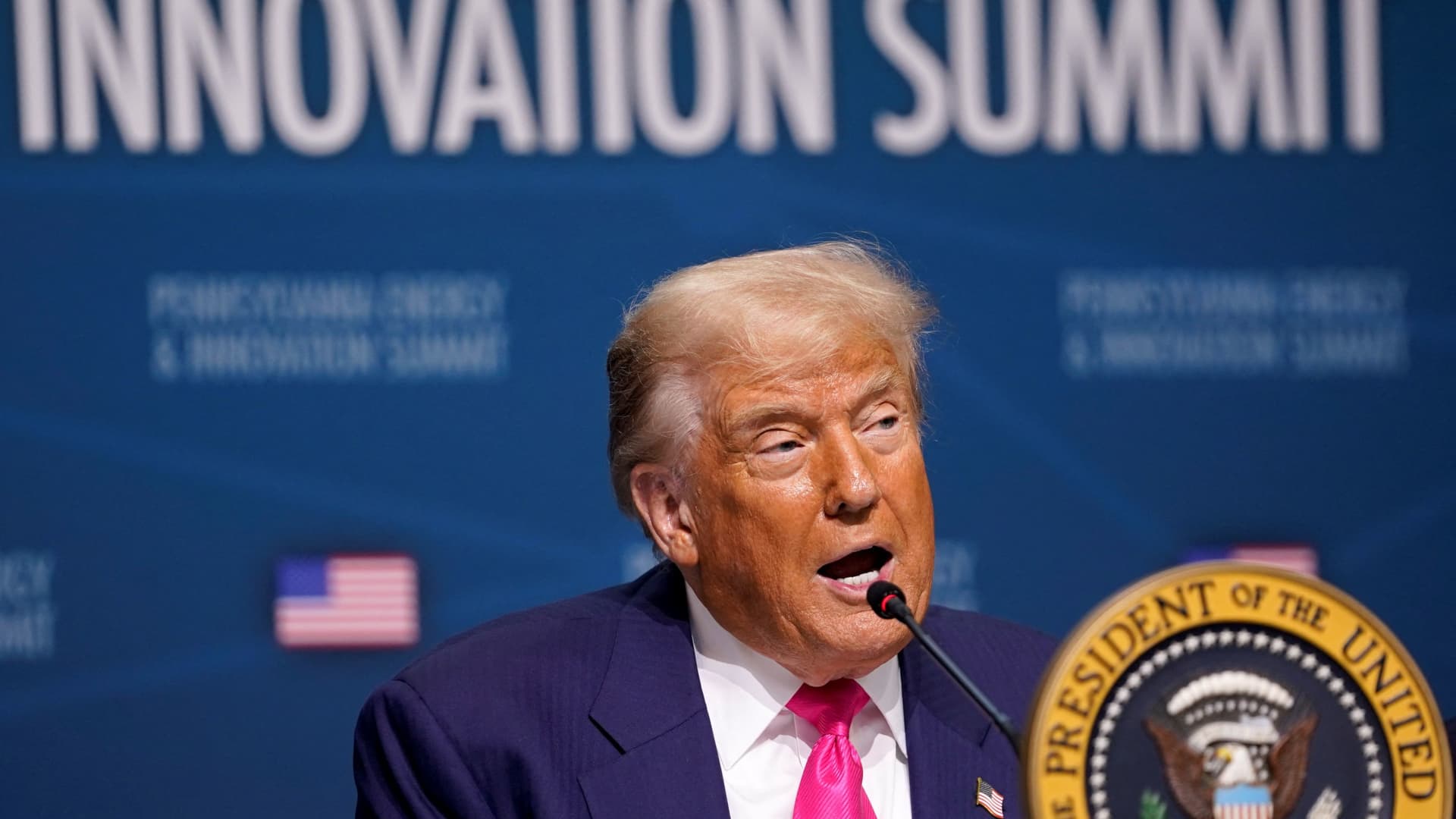U.S. President Donald Trump on Tuesday said letters notifying smaller countries of their U.S. tariff rates would go out soon, adding that his administration would likely set a tariff of "a little over 10%" for those countries.
Why it matters
- The introduction of new tariff rates could significantly impact international trade relations, particularly with smaller economies.
- A proposed tariff exceeding 10% may lead to increased costs for consumers and businesses in the U.S. as well as in affected nations.
- The move may escalate tensions in global trade, particularly amidst ongoing negotiations with larger trade partners.
In a recent statement, U.S. President Donald Trump revealed that his administration is preparing to send out notifications regarding tariff rates to smaller countries. This announcement, made on Tuesday, indicates a strategic approach by the Trump administration to adjust trade policies that could have substantial implications for both domestic and international markets.
According to Trump, the tariffs for these smaller countries are expected to be set at just over 10%, a figure that could influence various sectors reliant on international trade. The administration's decision to implement these tariffs appears to be part of a broader strategy to bolster U.S. economic interests and negotiate better terms with trading partners.
The president emphasized that these letters, which will detail the specific tariff rates, are set to be distributed soon. This timeline suggests that the administration is moving swiftly to establish its position on tariffs, likely as part of a larger effort to reshape trade dynamics that have been in flux in recent years.
While the exact countries affected by these proposed tariffs have not been disclosed, the implications are far-reaching. Smaller nations often rely heavily on trade with larger economies like the United States, and increased tariffs could strain these relationships. Many smaller countries may face economic challenges as they navigate the repercussions of higher tariffs on their exports to the U.S., which could lead to potential retaliatory measures.
Economists and trade experts have expressed concerns that imposing a tariff rate over 10% could lead to higher prices for American consumers, as businesses may pass on the costs associated with tariffs to their customers. This situation could exacerbate inflationary pressures in the U.S. economy, which has been a significant concern for policymakers and citizens alike.
Critics of the administration's tariff policy argue that such measures could lead to trade wars, which have the potential to disrupt markets and harm global economic stability. Past experiences with tariffs have shown that they can provoke retaliatory actions from other nations, leading to a cycle of increasing tariffs and counter-tariffs that may ultimately hurt both economies involved.
Moreover, the timing of this announcement is crucial, as it comes amid ongoing trade negotiations with larger economies, including China and the European Union. The Trump administration's aggressive stance on tariffs has been a cornerstone of its trade policy, aiming to address what it perceives as unfair trade practices and imbalances. However, the potential fallout from these new tariffs on smaller nations raises important questions about the administration's long-term strategy and the overall impact on U.S. foreign relations.
As the letters detailing the tariffs are prepared for distribution, attention will turn to how these changes will be received by the international community. Diplomatic discussions and negotiations will likely intensify as countries seek to understand the implications of the new tariff landscape and how it may affect their economies.
In summary, President Trump’s announcement about upcoming tariff notifications to smaller countries marks a significant move in U.S. trade policy. With proposed tariffs anticipated to exceed 10%, the repercussions for smaller economies and American consumers could be profound. As the situation develops, stakeholders across industries will be monitoring the outcomes closely, particularly as they relate to the broader context of U.S. trade relations and economic health.











